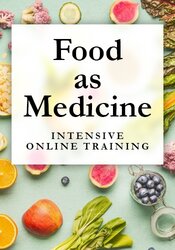Utilizing Nutrition as Part of Patient Care & Recovery
Free tips to helping your patients safely use fasting methods in nutrition plans

Nutrition is a significant factor in overall human health and using it to your and your patients’ advantage can optimize recovery efforts as well as long-term health. From dietary changes, to fasting strategies, implementing nutrition-based practices into your treatment plans could very well be the best thing for your patients’ health.
The term “fasting” can have a negative connotation because there is a fine line to be walked between losing weight and living a healthier lifestyle and developing an unhealthy lifestyle that can put someone’s life at risk. It is very common, especially in today’s culture, to accidentally cross over the line.
Fasting does not need to be an unhealthy practice. In fact, it can have health benefits that modern medicine (prescriptions, operations, etc.) has a hard time providing.
Cindi Lockhart, RDN, LD, IFNCP, has fasting tips that you can learn and apply to your practice to ensure that your patients are being mindful when on a fast:
The term “fasting” can have a negative connotation because there is a fine line to be walked between losing weight and living a healthier lifestyle and developing an unhealthy lifestyle that can put someone’s life at risk. It is very common, especially in today’s culture, to accidentally cross over the line.
Fasting does not need to be an unhealthy practice. In fact, it can have health benefits that modern medicine (prescriptions, operations, etc.) has a hard time providing.
Cindi Lockhart, RDN, LD, IFNCP, has fasting tips that you can learn and apply to your practice to ensure that your patients are being mindful when on a fast:
- Stay Hydrated
- 1/2 body weight in oz daily of filtered water or herbal tea
- No alcohol
- Rest and Relaxation
- Take time to repair and regenerate while fasting
- Plan fasting time strategically
- Avoid streneous activity, but don't be a couch potato
- Emphasize nutrient-dense foods on feeding days/hours
- Colorful, non-starchy vegetables
- Fruits
- Whole grains
- Legumes
- Lean, clean proteins
- Healthy plant-based fats
- Gentle movement, like a nature walk, is key
Food as Medicine Certification

Want to learn more about how nutrition can aid in treating your patients? Immerse yourself and expand your knowledge in nutrition-based solutions by registering for the Food as Medicine Conference, where speakers like Cindi Lockhart, RDN, LD, IFNCP; Michael Gregger, MD, FACLM; Michael Moss; Leslie Korn, PhD; and many more share their experiences and knowledge on nutrition-based insights and solutions.
These speakers will give you a new perspective on utilizing nutrition in your treatment plans for patient recovery as well as allow for you to handle questions more confidently by patients about their nutrition.
These speakers will give you a new perspective on utilizing nutrition in your treatment plans for patient recovery as well as allow for you to handle questions more confidently by patients about their nutrition.
Meet the Expert:
Cindi Lockhart, RDN, LD, IFNCP, is board-certified as an integrative and functional nutrition practitioner with over 30 years in professional practice. She has trained nutrition, fitness, and medical practitioners throughout most of her career, yet maintains a personal practice with clients as she believes that the only way she can effectively educate and inspire other practitioners is through her own practical experience with clients. In addition to educating on how Food is Medicine, Cindi also specializes in coaching clients and practitioners on the importance of managing stress, optimizing sleep, proper exercise and movement, and reducing exposure to environmental toxins. Cindi has extensive expertise in women’s health issues including hormonal imbalances, thyroid dysfunction, and autoimmunity as well as gut health, weight management, histamine intolerance, and immune health.
Learn more about her educational products, including upcoming live seminars, by clicking here.
Learn more about her educational products, including upcoming live seminars, by clicking here.



